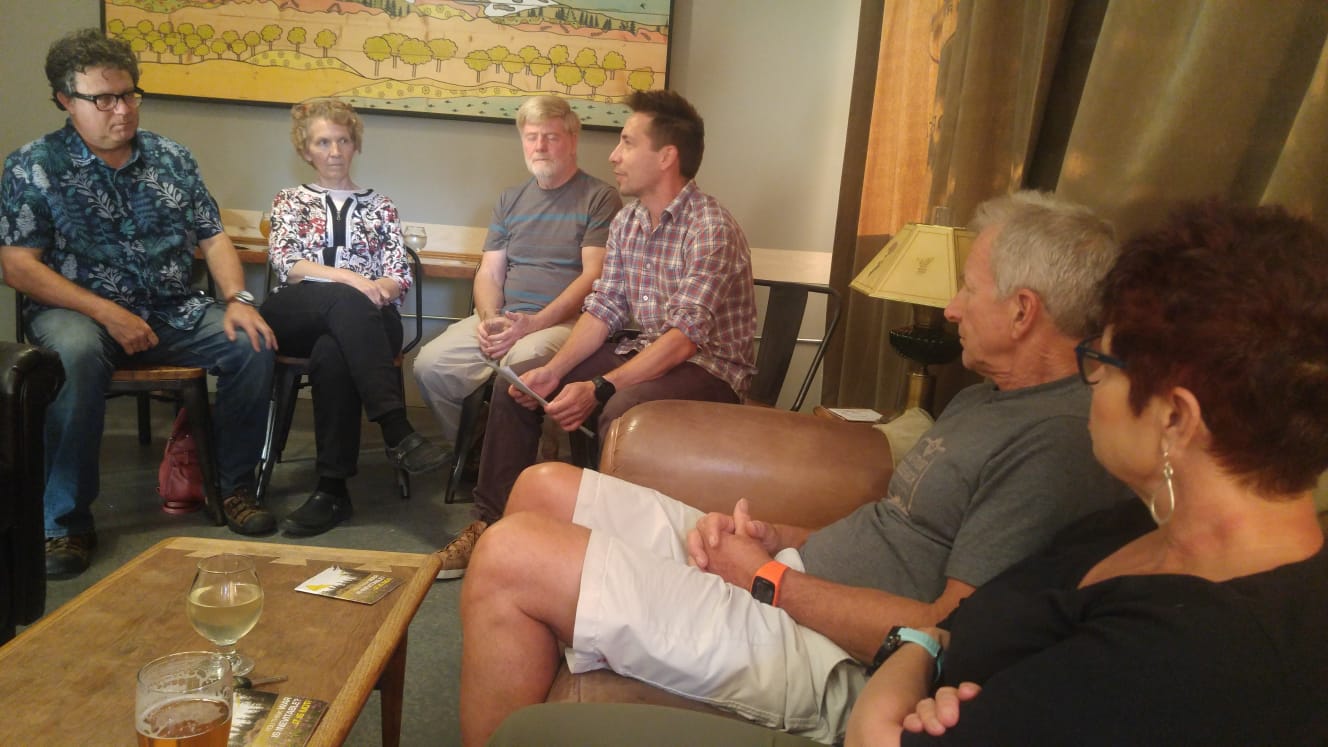Higher Education Programs Counter Violent Extremism
New research from Mercy Corps and the Joan B. Kroc Institute for Peace and Justice finds that access to secondary education reduces support and for violent extremist groups.

War Prevention Initiative presentation on Global Peace System
War Prevention Initiative Executive Director held a free public talk/workshop on the Global Peace System in the Spirituality on Tap series in Hood River, OR.
Unintended Consequences of “Robust” UN Peace Operations
An upcoming policy forum by the International Peace Institute will explore tensions between the pursuit of political solutions and the protection of civilians in the context of UN peacekeeping missions. Peace Science shows how the “robust” turn in UN peacekeeping has resulted in unintended consequences to civilians and the peacebuilding process.
Masculinity Operates In Both U.S. And Indian Nuclear Weapon Discourses
Masculinity operates in both U.S. and Indian nuclear weapon discourses–marking their nuclear programs as rational, responsible action engaged in strategic interdependence to meet their economic and political interests, and other programs as inadequate, irrational, or in need of supervision.
U.S./South Korean Military Drills Threaten Peace Talks
North Korea says joint U.S./South Korean military exercises are jeopardizing the upcoming summit between Trump and Kim.
Starting Wars Won’t Make Domestic Problems Disappear
In the wake of the U.S. abandoning the Iran Nuclear Deal and the growing tension between Israel, Iran, and the U.S., we must be wary of foreign policy saber-rattling in the context of “rallying around the flag”.
U.S. Troops Now Directly Involved In Yemen War
U.S. troops now hold a direct role in the Saudi-led campaign in Yemen, diverging from previous statements from the Pentagon and Trump administration claiming U.S. support was limited to arms sales, aircraft refueling, logistics, and intelligence.
“Trump’s Termination of the Iran Deal is a Risky Bet”…Sanctions Aren’t Easy.
On May 8th, 2018, the U.S. pulled out of the Iran Nuclear Deal. The Trump administration claims the deal is unfair and leaves plenty of opportunities for Iran to develop a nuclear weapon–a claim all other parties to the deal disagree with.
Trump Has Missed Two Deadlines for Reporting Civilian Casualties of US Wars
Congress requires the White House to issue an annual report on civilian casualties of US military operations. The current administration has also ignored an executive order that requires the reporting of civilians killed by drone strikes and other counterterrorism activities. Both reports were due on May 1.
Despite Israeli/U.S. Concern, The Iran Nuclear Deal Is Working & Vital
A recent address by Israeli PM Netanyahu confirmed what the world has known for 10 years: that Iran suspended a portion of their nuclear weapons program. That program was a major reason the current nuclear deal was struck in the first place, and why its verification provisions are the most intrusive in the history of arms control agreements.
Global Health Leaders Rally Behind Nuclear Weapons Ban Treaty
The International Committee of the Red Cross and the World Medical Association have issued important and very timely calls for states to join and implement the Treaty on the Prohibition of Nuclear Weapons.
